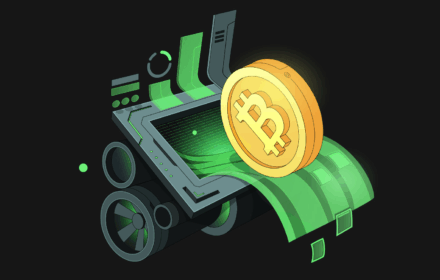The growing popularity of digital currencies and blockchain technologies has raised a logical question – why do we need a cryptocurrency wallet and what role does it play in the cryptocurrency ecosystem? Despite the abundance of exchanges and services, wallets remain the main tool for storing and managing digital assets.
A wallet should not be perceived as a traditional bank account. In the context of blockchain, it rather serves as a key to owning tokens. Without it, it is impossible to conduct a transaction, sign a transfer, or receive funds at an address. Cryptocurrencies are in a distributed network, and the wallet only provides access to them. Understanding how a cryptocurrency wallet works and what tasks it solves is important for anyone interacting with the crypto market.

Functions and advantages: why do we need a cryptocurrency wallet?
To understand why a cryptocurrency wallet is needed, it is necessary to understand its functional capabilities. The main task is secure storage and control over private keys that provide access to tokens in the blockchain. It is the keys, not the coins themselves, that are stored inside the application or device. Data security is critically important because losing information is equivalent to losing funds.
With a wallet, you can not only store assets but also interact with blockchains: send and receive transactions, sign smart contracts, track balances. Additionally, many wallets support cryptocurrency trading, token exchange, staking, access to NFTs, and Web3 applications.
The clear advantages of a cryptocurrency wallet include:
- autonomy – the user has full control over their funds without intermediaries;
- flexibility – support for multiple currencies and tokens;
- mobility – solutions available for smartphones, browsers, and hardware devices.
Types of cryptocurrency wallets and their features
There are several types of cryptocurrency wallets, and to understand why they are needed, it is important to understand their purpose. Wallets differ not only in the way they store keys but also in the level of convenience and security. The key criterion is the level of control and security of the cryptocurrency. Let’s take a closer look at the possible storage options.
Online cryptocurrency wallet
A web or mobile application that connects to the network and provides quick access to assets. Convenient for daily operations but susceptible to hacking risks if an unreliable service is used.
Hardware wallets
Physical devices where keys are stored offline. The most secure way to protect crypto, especially for long-term storage. Even when connected to an infected computer, the risk of theft is almost eliminated.
Desktop solutions
Installed on a computer and allow managing funds without constant internet connection. They are more secure than web counterparts but less mobile.
Paper wallets
The least convenient but still relevant method. They consist of a printed QR code with keys, suitable for storing a large amount of assets without the risk of digital hacking.
The choice depends on the tasks: active trading will require online access, while long-term storage will require hardware-level security.
Why do we need a cryptocurrency wallet: mechanics and principles
The mechanism of operation is based on interaction with the blockchain network. To make a transfer, the wallet creates a transaction, signs it with a private key, and sends it to the network for confirmation. The address received when creating the wallet is the public part of the information used to receive funds.
The wallet itself does not store coins in the literal sense – they are recorded in the blockchain, and the wallet provides access to manage them.
Considerations when choosing: tips and recommendations
Before choosing a solution for storing cryptocurrency, several important parameters should be considered. The reliability of the provider, support for necessary coins, and interface – all of these affect the convenience and security of working with the wallet:
- supported tokens – not all applications work with the required blockchains;
- storage type – online, hardware, or a mixed approach;
- backup – the ability to restore access in case of device loss;
- encryption level and two-factor protection;
- integrations – support for DApps, Web3, and trading platforms.
Understanding why a cryptocurrency wallet is needed begins with the question of control. The higher the control over private keys, the more reliable the storage. That is why it is not advisable to trust funds to centralized platforms if you do not have backups and access to the seed phrase.
Tips for secure management of crypto assets
Dealing with cryptocurrency requires caution. Lost access cannot be restored through support, and stolen funds cannot be recovered. Treat your wallet like a bank safe with the highest level of protection:
- always back up the seed phrase and store it offline;
- do not share private keys with third parties;
- use only trusted applications and websites;
- disconnect from the internet when using desktop solutions;
- regularly update the wallet software.
These simple actions will provide a basic level of security and minimize the risk of losing or theft of funds when working with tokens.

Why do we need a cryptocurrency wallet: conclusions
Understanding why a cryptocurrency wallet is needed allows not only to protect assets but also to effectively participate in the cryptocurrency ecosystem. A wallet is not just an application for transferring funds, but a key to digital independence, trading, storing, and managing crypto without intermediaries.
Whether it’s cryptocurrency trading, investments, or simply sending coins, the wallet provides control over private keys and access to savings in the network. It is important to choose reliable tools, understand their operation, and follow basic security rules. Then working with digital assets will not only be convenient but also secure.
 en
en  ru
ru  de
de  ar
ar  es
es  nl
nl  hi
hi  fr
fr  it
it  pt
pt  el
el 



